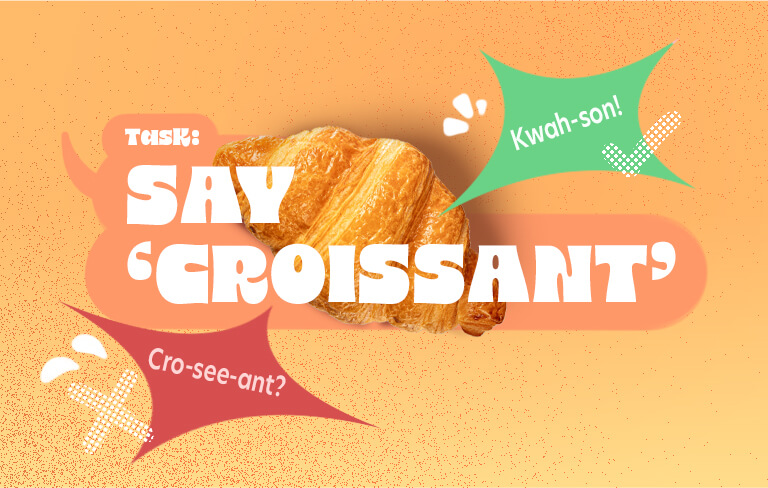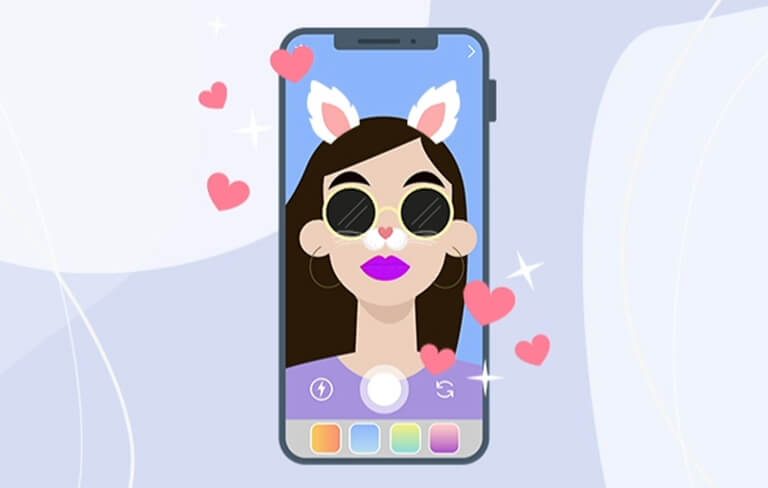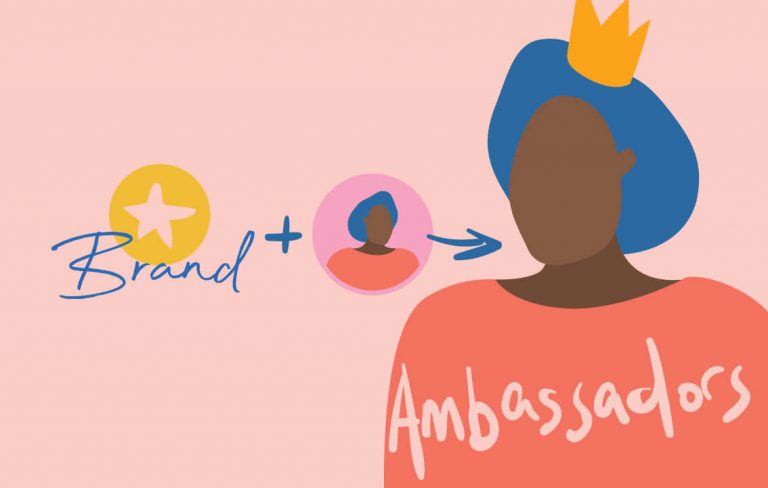Think about the last time you stumbled over ordering a croissant at a café, or hesitated before saying houjicha at the counter. Did you laugh it off, ask the server for help, or mumble your way through? These little pronunciation moments happen all the time, and they stick with us. They’re awkward, funny, and oddly memorable — which is exactly why pronunciation can be such a powerful tool in marketing.
At first glance, it may seem trivial. If a consumer understands what product you’re referring to, why fuss over whether they say it the “right” way? Yet, in practice, pronunciation can make the difference between a brand that fades into the background and one that sparks conversations, gets remembered, and earns cultural relevance.
Pronunciation is powerful because it carries more than sound. Saying a name correctly shows authenticity, signals cultural respect, and creates a stronger memory link. Even better, when brands playfully invite people to join in to try, to laugh at themselves or to repeat the word out loud, they transform a passive audience into an active participant. It’s not just about teaching how to say a word. It’s about building an experience.
Sunshine SHOKUPAN GOLD Limited Edition Brioche campaign:
When Sunshine Bakeries launched its SHOKUPAN GOLD Limited Edition Brioche Butter Loaf, it leaned into a common problem: hardly anyone was confident about how to pronounce “brioche”.
At Mashwire, we turned this challenge into a playful moment with the #ItsBriocheRight challenge. Influencers and consumers were invited to record their attempts, with families and children often joining in. What could have been intimidating became approachable, fun, and even endearing.
The challenge worked because it gave people a reason to say the word out loud. Each time they tried, they reinforced recall. More importantly, the act of sharing their pronunciation turned them from passive viewers into active participants in the campaign. By leaning into the uncertainty around the word, Sunshine made “brioche” not just a product name, but a conversation starter.
Want the full story of how Mashwire made ‘brioche’ unforgettable? Explore the case study here.
Pokka Houjicha: Teaching Through Play
Pokka faced a similar hurdle with the launch of its Houjicha range. While green tea is familiar in Singapore, “houjicha” was not only less known but also tricky to pronounce.
Rather than simplifying or avoiding the word, Pokka embraced it, and Mashwire brought it to life through a campaign that broke pronunciation down in a fun, accessible way using videos and interactive contents to show consumers how to say it right. To amplify this further, we collaborated with well-loved DJs who could casually demonstrate the word on-air, making the pronunciation feel natural and easy to pick up. This shifted the learning from being a brand directive to a social, everyday interaction.
This turned a potential barrier into an opportunity. Instead of being dismissed as “just another tea,” Houjicha became a cultural experience. Each time someone practiced saying it, they weren’t just learning a new word, they were connecting with the story behind the product.
Why Pronunciation Marketing Works
Both Sunshine and Pokka have shown how pronunciation can be more than a linguistic detail. It becomes a brand strategy, proving that something as simple as a word can become a cultural hook that entertains, educates, and involves. When done well, it creates a loop: people say it, they remember it, they share it, and in doing so, they spread the brand’s story.
Authenticity: Teaching or encouraging the right pronunciation shows cultural respect and adds credibility.
Memorability: Saying a word aloud makes it stick; far more than reading it silently.
Engagement: A pronunciation challenge is inherently participatory. It invites people to join in, joke, and share.
Most importantly, it creates joy. Consumers aren’t just told about a brand, they get to play with it, shaping their own version of the story.
Beyond Words: Making Participation Real
In a world where attention spans are short and competition is intense, every opportunity to stand out matters. At the end of the day, pronunciation isn’t just about words. It’s about creating moments of interaction and turning consumers into participants — and that’s when marketing really comes alive. Whether through a TikTok challenge, an Instagram reel, or even an in-store game where shoppers can “say it to win it”, pronunciation gives consumers a reason to lean in instead of scroll past.
While “pronunciation marketing” is not an established industry term, we use it at Mashwire to describe a distinct approach: transforming linguistic quirks into brand strategies that build authenticity, memorability, and engagement. It’s a lens that helps brands recognise overlooked opportunities to connect with consumers in meaningful, culturally relevant ways.
Curious how your brand can turn small moments into big conversations? Reach out today!





